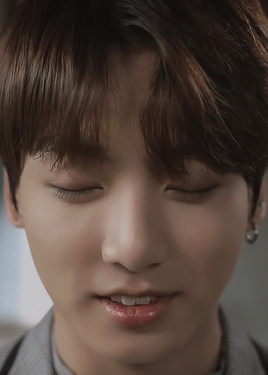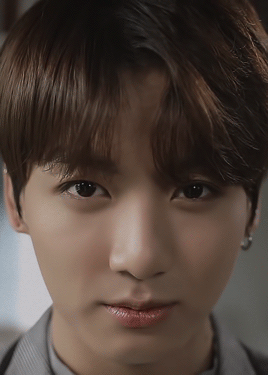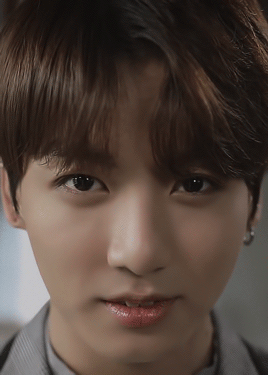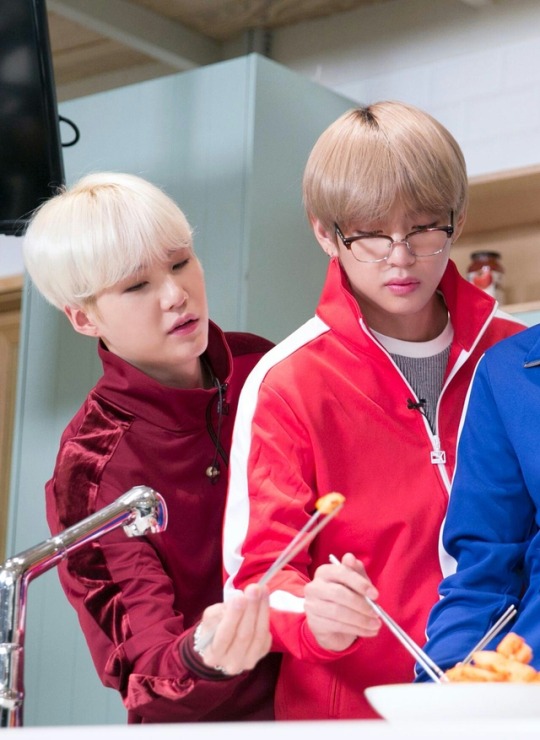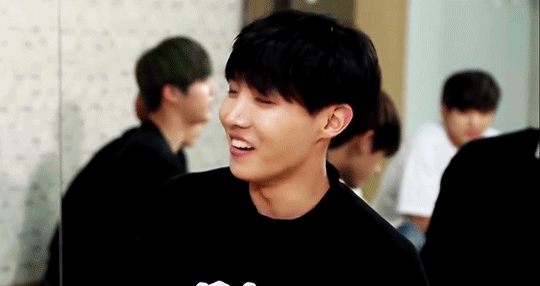Text
Call It What You Want by gimmelurv
Fic Link: https://archiveofourown.org/works/7483296
Group: BTS
Pairing: Hoseok/Yoongi
Words: 3966
Contains Spoilers
This is an endearingly sweet fic. Hoseok is bright, happy, sunshiney, and affectionate. Yoongi is grumpy and in denial (he never blatantly denies any of Hoseok affections). However, the best thing of this fic is the unexpected ending. I have seen this storyline plenty of times before and was ready for Yoongi to have a sudden epiphany of the feelings he’s been suppressing towards Hoseok. However, I am delighted to find that this author took a different approach. I love the dynamic between Yoongi and Hoseok’s relationship, in which Yoongi seems to be on the offensive and Hoseok is always there to reel him back in. It’s cute and fun.
#kpop fic#bts fic#bangtan fic#bts scenarios#bangtan scenarios#bts ao3#bangtan ao3#fluff alert#yoonseok#gimmelurv
8 notes
·
View notes
Text
Pull Me Closer by kpophostage
Fic Link: http://kpophostage.tumblr.com/post/157386382296/pull-me-closer
@kpophostage
Group: BTS
Main Pairing: Namjoon/Female Reader
Words: 6267
This is a beautiful fic and a very interesting and dynamic take on the soulmate au. I enjoy the intertwining stories of the characters in the present and the characters in their past life. The fic itself is very original and the concept is beautiful. It is very reminiscent of a kdrama. There is only a singe of angst. The ending, however, left a panging in my heart. The ambiguous ending is also nice, it leaves us to decide the fate of their relationship, which is set up in the beginning where the author briefly mentions the existence of platonic soulmates. The writing itself flows nicely, however I do wish - because of the beauty in concept - that it invoked more emotions out of me. Overall, I really enjoyed the fic and it gave me a fresh out look on the soulmate trope.
1 note
·
View note
Text
when you’re in love all the lines get blurred by jflawless
Fic Link: http://archiveofourown.org/works/3896845?view_full_work=true
@jacksnwangs
Group: BTS
Pairing: Jimin/Yoongi
The first chapter is the actual fic and all the other chapters are bonus scenes. All 11 chapters are worth the read though. It’s a fake dating au and a coming out story, where both characters are unaware of their feelings for each other. The miscommunication in this story is on par with Shakespeare. There are plenty of scene in which I wished for the characters to simply talk about their feelings. However, true to Shakespeare, they don’t and bigger issues arise. Their lack of communication turns it into a slow burn and had me hanging on to every last word. The author is skilled at showing and portraying the emotions of the characters. The bonus chapters are just as well written as the actual story. They also add on more dimensions to the characters. Overall, this is the perfect fic if you are looking for just slight angst with a happy ending. It’s one of my favorites.
#kpop fics#bts fics#bangtan fics#bts ao3#bangtan ao3#bts scenarios#bangtan scenarios#kpop scenarios#fake dating au#yoonmin#jflawless
0 notes
Text
One of the cutest things about yoongi is how he can’t look someone in the eye as they’re paying him a compliment, but he still has that little shy smile while looking at the floor, so you still know he’s very appreciative of it.
2K notes
·
View notes
Photo

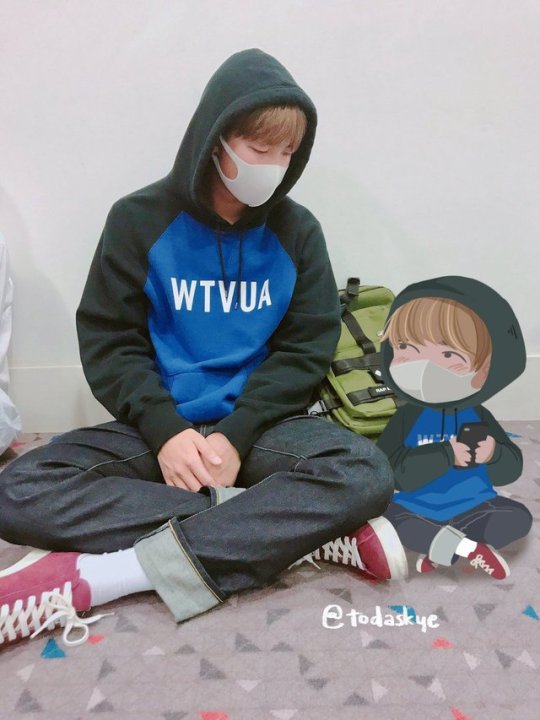
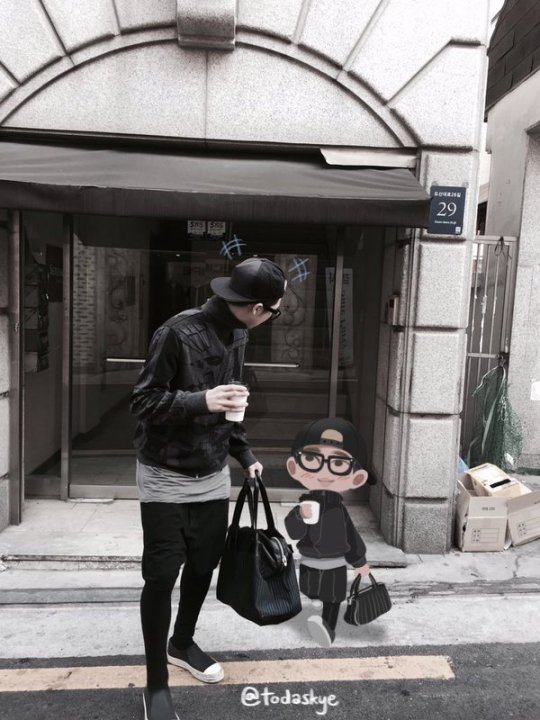
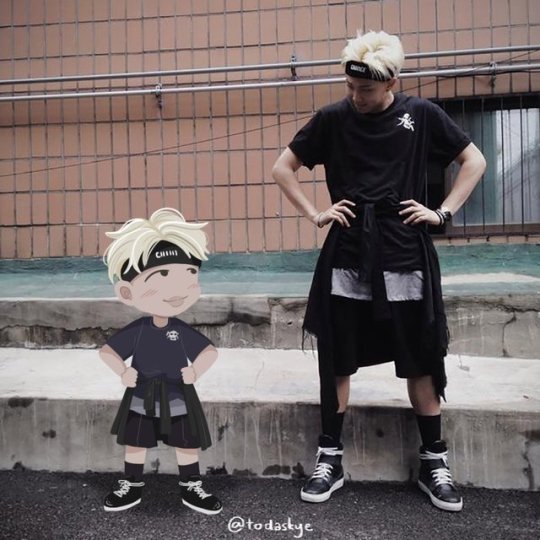
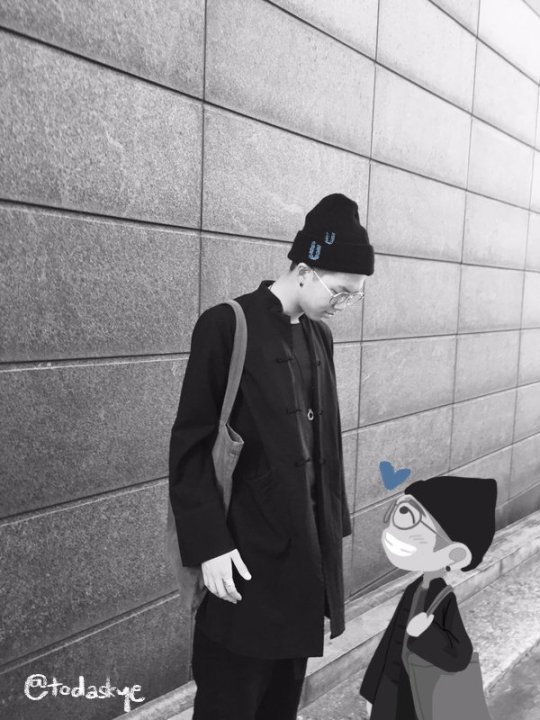
Rap Monster #kimdaily and his little RM~ i love this fan art so much 💜
Fanart by @todaskye
(DON’T Crop the credit, please!)
8K notes
·
View notes
Text
Stereotypes, Tropes, and Archetypes
What are the differences between stereotypes, tropes, and archetypes? What are they? How do writers use them? Let’s take a look at some vocabulary and how we define these terms to make sense of them for ourselves.
Stereotype (n): A widely held but fixed and oversimplified image or idea of a particular type of person or thing.
To elaborate on this, stereotypes can be seen as sets of characteristics or behaviors that are commonly associated with one another, thus making it easier to intuit some of them if one or more is known. Stereotypes, though, are not literary. They refer to beliefs held about groups in reality, not types of characters. The literary cousin of the stereotype is the trope.
Trope (n): devices and conventions that a writer can reasonably rely on as being present in the audience members’ minds and expectations.
If tropes seem a little too much like to stereotypes for comfort, that’s because, technically speaking, they are stereotypes. “A Trope is a stereotype that writers find useful in communicating with readers.” (x) However, because the word stereotype has become so stigmatized in society, we prefer to think of tropes as specific to storytelling.
You use tropes in your writing. It is nearly impossible to escape them. And that is okay.
Tropes are things that pop up repeatedly in media as cultural norms in storytelling—types of characters, settings, plot lines, etc.. Stuff like a Manic Pixie Dream Girl who exists to usher a male character to his higher level of emotional awareness or personal growth, or a case of Mistaken Identity where Hilarity Ensues. Tropes are culturally-based, which is what sets them apart from archetypes.
Archetype (n): a very typical example of a certain person or thing; types that fit fundamental human motifs.
An archetype is a kind of character that pops up in stories all over the place. A trope is a character that puts that archetype in a cultural context.
For instance, let’s say you have a character who is a Geek. The role of a Geek in literature is a trope, because it is common in a certain culture (i.e. Western, though depictions of the Geek will vary within Western Civilization as well). Broadly and therefore in terms of an archetype, the Geek is the Scholar, a person who is constantly in search of knowledge. Various stereotypes about the Geek (like poor social skills) might then be inferred by characters or readers based on their understanding of the society in which they live.
It’s important to mention that none of these things are necessarily clichés.
Cliché (n):
A trite or overused expression or idea; often a vivid depiction of an abstraction that relies upon analogy or exaggeration for effect, often drawn from everyday experience.
A person or character whose behavior is predictable or superficial.
For more about clichés, mosey over to this post. Essentially, clichés are boring and overdone by definition, but tropes and archetypes can be useful. Yes, this is a subjective distinction.
So here’s the breakdown:
Stereotypes: Not literary. We avoid using this term to talk about classifying characters, settings, plot points, etc..
Archetypes: The broad, all-encompassing norms of the stories humanity tells. The same archetypes can be found in all or nearly all cultures.
Tropes: Culturally-specific norms in storytelling. Tropes are cultural classifications of archetypes. There can be many tropes found under the umbrella of one archetype. Literary devices are not tropes (i.e. narrators, foreshadowing, flashbacks, etc.).
Clichés: Overused and hackneyed phrases, characters, settings, plot points, etc.. Archetypes do not become clichéd. Tropes can become clichés if they are used too often and readers get bored of them. Clichés are defined by a loss of the meaning or as a distraction from the story.
Let’s focus on tropes and archetypes now as these terms are often used as a sort of shorthand when writing. Once you have firmly introduced a character as one type of archetype and/or a trope within that archetype, you do not have to elaborate on the character as much before moving on in the storyline.
While this can be useful and can help keep a section moving, it can also be very lazy, can help to perpetuate unhealthy stereotypes that carry over into the real world, and can make for one-dimensional characters. All of this forces the readers to focus on the way the story is being told instead of the story itself. Not good.
Here are some questions to keep in mind when using trope and archetypes in writing:
Is this derogatory? Does this demean or belittle? Is it harmful to the reader? For instance, the Dumb Blonde trope from American culture can assume that all blondes are easily-fooled, flighty, and even promiscuous. In the real world, the Dumb Blonde trope certainly translates into a derogatory stereotype, so is it something you want to use in your writing or can you manipulate the trope to create something unexpected?
Is this really necessary? Do you actually need to use a trope or archetype as a base for your character to keep the flow moving or the characters easy to remember, or are you using it so you don’t have to bother to give your character, well, character? Laziness is no excuse for poor writing. Using a trope can flatten a character very quickly if that’s all that they have going for them. There’s even a term for a character whose personality is limited to a single trope; they’re called stock characters.
Is this actually the one I want? Perhaps the empty headed and hot cheerleader trope is not the one you want. Maybe the secretly hot booksmart nerd is a better fit for your story. Maybe not. Really think about what base characteristics you give your characters, because they an come in handy farther down the storyline. Browsing tropes is fun, but at the end of the day, try combining character traits to create something that is unique for you is what makes a character worth writing.
Am I using this to bash someone? While almost all tropes can be harmful in one way or another, how you present them can have a big effect on whether or not you are actually using a trope or are pulling away from your story to offer the reader a stereotype instead. Being nasty because of someone else’s perceived shortcomings won’t help your story, and, if that’s not enough reason, it can be harmful to you because people will call you on it. Depth is key.
How can I use this in a way that is helpful? By making your characters more personalized and three-dimensional, you humanize them and give the reader a better chance of empathizing with them. In Creative Writing Tip: Avoiding Stereotypes, Matthew Arnold Stern says:
The antidote to stereotypes is to create well-rounded characters with clear and human motivation. Even a character who appears briefly in a story can benefit from depth and complexity. Such characters add realism and depth that draws us further into the story.
Choose a base trope or archetype for a character, and then elaborate on it in a way that breaks expectations or defies convention. A shy, sweet, nerdy girl who is not afraid to loudly tell someone to stop when she is uncomfortable and is happy with who she is could be a much more interesting character then the throw away filler character of a compliant, scared bookworm. A big, popular jock who is not afraid to stand up against bullying and treats his parents and teachers with respect has more hidden depth than the usual sneering bullies that populate literary sports fields.
All in all, archetypes and tropes can be a handy writing tool when used sparingly, but we have to remember that the stereotypes we perpetuate in our writing resonate with people in real life.
Speaking in terms of subject matter and not story construction, stereotypes have their place in literature, so long as the writer and the reader are completely aware of the fact that they are being used. Perhaps you are using a stereotype so you can later break it in an interesting way as a plot device, or you are driving it home as a stereotype that you feel is justified. For instance, there is the stereotype that drug dealers are dangerous and violent. The fact that anyone who is actively complicit in illegal activities is potentially dangerous is true, and it probably is best to avoid and not trust someone whose livelihood revolves around convincing you to break the law.
In Is Stereotyping Bad?, Brittney Weber said:
“Stereotypes have the potential to show a member of a particular group how to behave or how others believe they do. The latter may be apparent in the way they are treated by society at large, while the former encourages them to remain within the confines of that definition.”
So think before you write, and be considerate of the effect your writing may have on others, as well as the effect that devices like tropes can have on your writing.
Further Reading:
Avoid Stereotyping
Using Inclusive Language to Avoid Stereotypes
Creative Writing Tip: Avoiding Stereotypes
TVtropes.org
12 Common Archetypes
Archetypes and the Collective Unconscious
Character Archetypes
Archetypical Character
-Ji, O, and C
9K notes
·
View notes
Text
does anyone know any writers that write members x male readers?
thank you!
0 notes
Text
Charmed by kaythebest
Fic Link: https://archiveofourown.org/works/10713981
@kaythebest
Group: BTS
Main Pairing: Namjoon/Jin
Side Pairing: Taehyung/Yoongi/Jimin
Words: 23479
Contains Spoilers
This is the gateway fic that lead me to read fics that involve fantasy and magical elements. This is a beautiful piece, one of my favorites. It’s the first thing I recommend when asked. The humor is subtle and amazing. It seems to be the way the Jin copes with learning of the existence of magic. I love how the mountain is the ultimate matchmaker. Jin and Namjoon’s relationship builds slowly with trust and understanding. In a way they are both lonely and seeking companionship without ever realizing it. The roots metaphor brilliantly depicts their differing yet similar loneliness - in which on is rooted while the other has no roots. The ending is absolutely amazing and powerful. At first I was mad at Jin for leaving; but when he came back with a glass flower for Namjoon, I think I had actual tears in my eyes. Its very beautiful and magical. It’s a fairytale.
#bts fics#bangtan fics#bts ao3#bangtan ao3#namjin#taegimin#magic#fantasy#fairytale#beautiful#kaythebest#kpop scenarios#kpop fic#bts scenarios#bangtan scenarios
0 notes
Text
Barbershop Romance by MissterMaia
Fic Link: https://archiveofourown.org/works/10408749
Group: BTS
Main Pairing: Yoongi/Jimin
Mentioned Pairing: Taehyung/Jungkook
Words: 13164
This is so cute. It’s the perfect read for when you need a fluffy piece to put a smile on your face. You are guaranteed to smile at least 3 times while reading this piece. In my opinion, Jimin makes the perfect shy cute boy character. He just has the smile that fits it so well. Like I just want to take this Jimin and cuddle and protect him. I also like how Yoongi seems to read Jimin’s shyness and handles him with such soft fondness. The writing itself flows really nicely despite the character themselves being a little bit awkward. The inclusion of Jimin’s internal monologue adds on to all second hand embarrassment, which only makes Yoongi’s soft reassurance all the more enjoyable. Overall, this fic is so really damn cute.
#bts fics#bangtan fics#bts ao3#bangtan ao3#yoonmin#taekook#misstermaia#fluff alert#kpop scenarios#bangtan scenarios#bts scenarios#kpop fic
0 notes
Text
A Hand on the Thigh by Tayegi
Fic Link: http://tayegi.tumblr.com/post/153401040750/a-hand-on-the-thigh
@tayegi
Group: BTS
Pairing: Hoseok/Female Reader
Words: 2397
Tayegi proves that even shorter fics can be deep, profound, and invoking. Despite it being shorter in word count, it feels long. It’s a good slow burn type of long that fits in with the concept. The story is very realistic. It beautifully captures that moment where small things - such as “A Hand on the Thigh - has a deeper meaning on one person than it seems to have on the other. But it also leaves behind lingering thoughts of what if. I think the true beauty in this piece is that everyone can relate to it, and everyone has their own personal story to connect with it. The writing itself is amazing and excellent like all Tayegi fics. It flows and transitions well between scene, despite it containing a lot of scenes for a shorter fic. Overall, this is a fic that I read when I want to feel something deeper. Every time I read it, I am left wondering about my own “A Hand on the Thigh” experiences.
#bts fics#bangtan fics#hoseok/reader#beautiful#tayegi#bts scenarios#bangtans scenarios#kpop fic#kpop scenarios
0 notes





